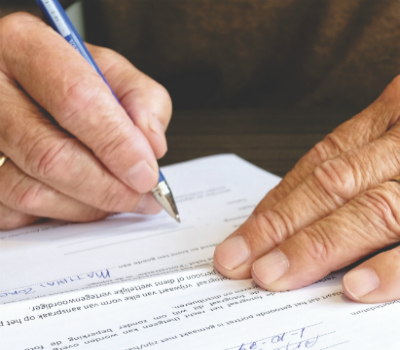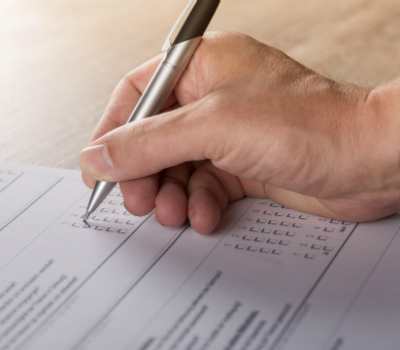
Legal Advice
After a death, there are many legal details to work out. While it is not necessary to work with a lawyer, it is recommended. The time following a death of a loved one is extremely emotional, and even the closest family may have disagreements. To ensure lasting peace in the family, it is sometimes helpful to have a third party involved.
Before getting in touch with a lawyer, there are several important documents that you need to gather. Those include:
- Any wills that you are aware of
- Deeds
- Bank Statements
- Insurance Policies
- Vehicle and Boat titles
- Tax Documents

 Bank Accounts
Bank Accounts
Procedures for bank accounts following death vary regionally. In some areas, bank accounts are automatically frozen after a death. To avoid any complications, the bank should be notified immediately. The bank employees will guide you through the next steps from there.
> LEARN MORE

 Death Certificates
Death Certificates
Once the doctor has signed the death certificate, certified copies can be ordered through the funeral home. The State of Iowa currently charges $15 per copy. You may find you will need a certified copy for the following reasons: setting up an estate, life insurance policies, changing a title on a deed, investments and retirement funds. We recommend ordering what you know you need at the time and additional certified copies can be ordered at any time.
> LEARN MORE

 Wills
Wills
Everyone knows they should have a will, but the vast majority – about 70% of us – do not. Writing a will is easy and inexpensive, and once you are done you can rest easy, knowing your hard-earned money and property will be distributed according to your wishes, and that your loved ones will be taken care of in your absence.
> LEARN MORE

 Probate
Probate
Probate is the legal process that transfers the ownership of property from the estate of the deceased to their beneficiaries. During the probate process, the executor of your will goes before the courts and identifies all the property you owned, appraises the property, pays all debts and taxes, proves that the will is valid and legal, and distributes the property according to the instructions of the will.
> LEARN MORE

 Executors
Executors
An executor is the personal representative of your estate. They are the person in charge of taking control of your assets, paying off any debts, and distributing assets to your beneficiaries per the terms and conditions of your will.
> LEARN MORE


